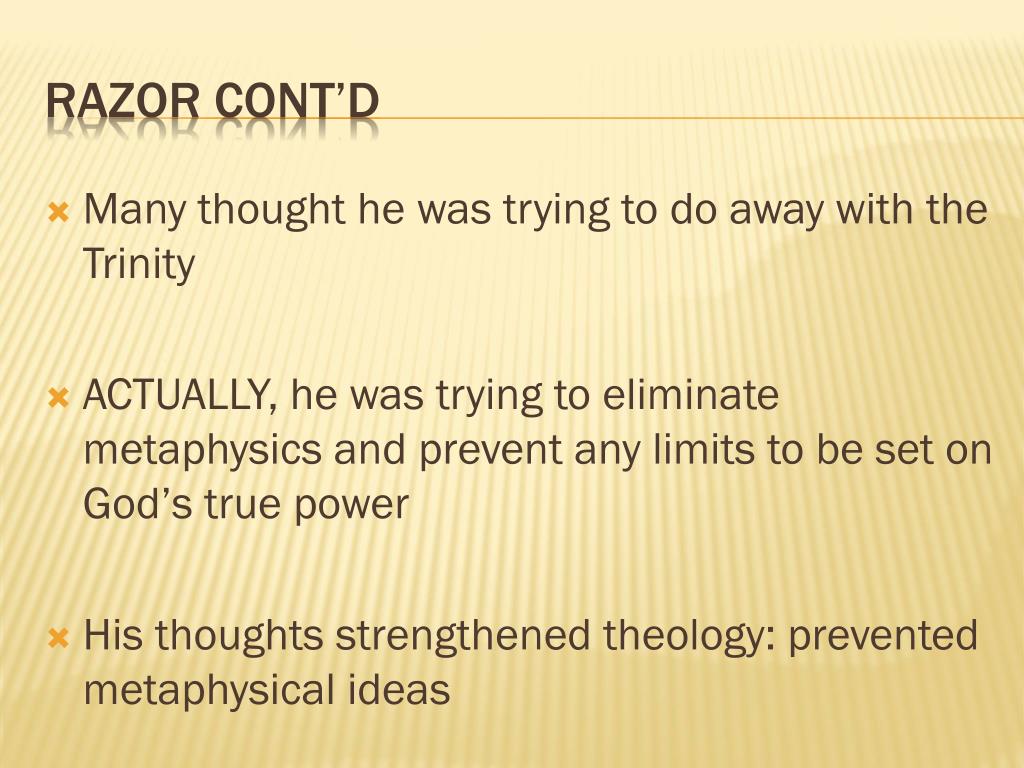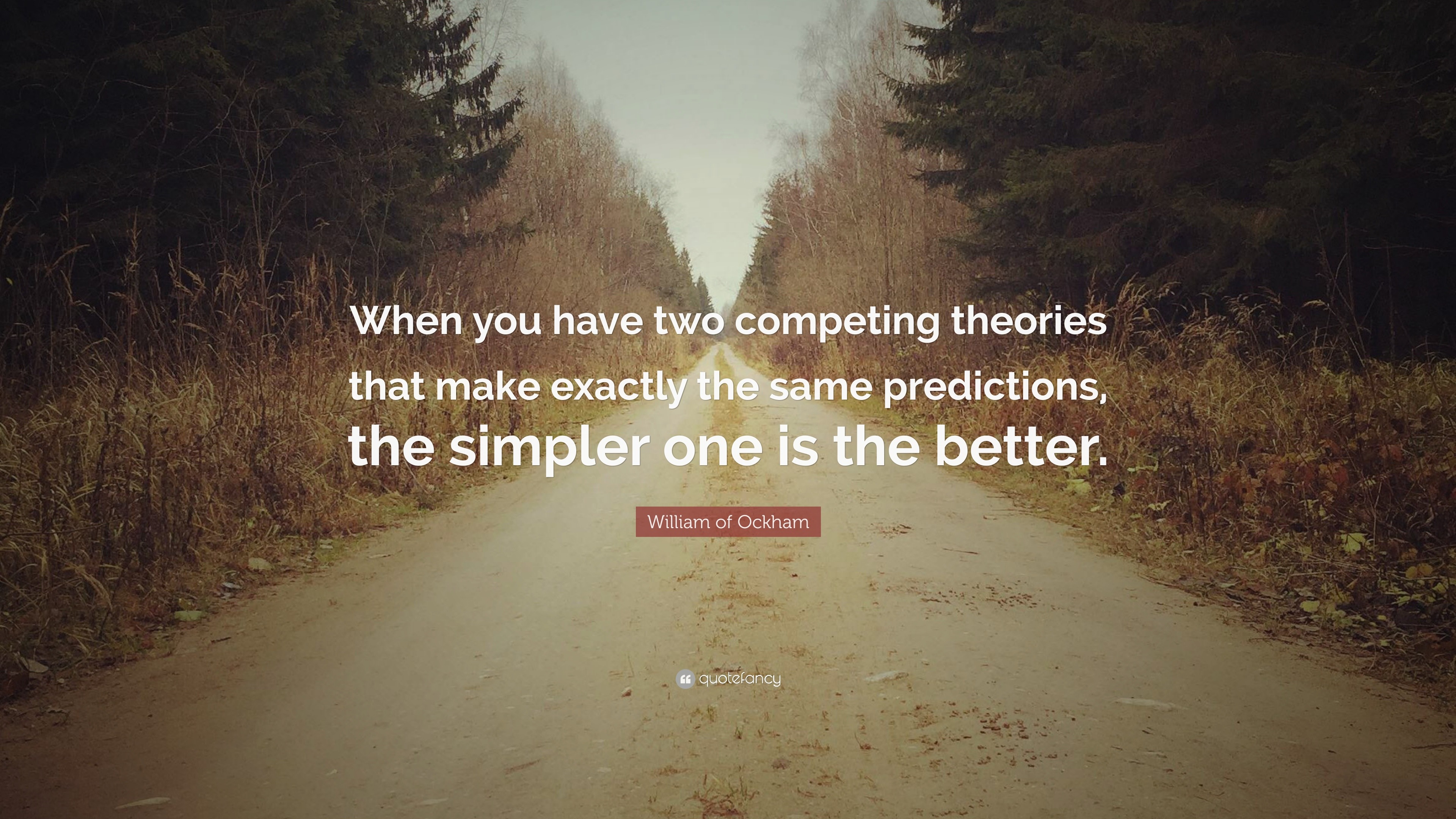

Unity, existence, and number were according to him empirical concepts. He was more concerned and concentrated more on the empirical idea of a concept rather than beliefs and opinions. According to him, all knowledge came from sensation or reflection in an aware and working mind. The first two volumes studied Empiricism in great detail.
#William of ockham empiricism series
His “Essay Concerning Human Understanding” that was a series of books that explained various philosophical topics came out in 1690. The most detailed elaboration of the theory of Empiricism was made by John Locke (1632 – 1704). The biggest Empiricist was Francis Bacon who gave his theory of knowledge that came from an aware and mindful state of a human mind was the only knowledge worth conceiving.īased on Empiricism, he further produced the principles of Scientific Induction. In the Modern time, empiricism began to flourish more, evidently during the Renaissance in Europe. The Theory of Empiricism in the Modern Age However, the churches and traditional societies favored rationalism over empiricism. They were in existence in his head and were purely hypothetical.įurther, his followers went further to study radical empiricism and rationalism began to weigh low on the balance. He stated that all information known to man came from the senses and the truths that man had in his mind were ‘abstractive’ in nature. In the 14th century, there came a systematic approach to empiricism given by William of Ockham, the nominalist. He embarked empirical knowledge over the natural world. In the 13th century, Roger Bacon emphasized considering observations over deductive reasoning.

St Augustine and St Thomas Aquinas were known philosophers of the Middle Age that studied empiricism. Through these theories, the concept of God was derived from analogy. This Age experienced the beliefs of unseen things such as Angels and Spirits.

The Theory of Empiricism in the Middle Ages It takes in sensory information and records experiences from its surrounding then comes to a conclusion that shapes his beliefs and in turn a person’s personality. The ‘Stoics’ – people who studied at a school in Athens in the early 3rd century BC., believed that the human mind in its early stage is like a clean slate. An ornament was worn by the SophistsĮven the Sophists, teachers of the Greek Civilisation always kept humanity before any social traditions. All this, in turn, made Mathematics become the ultimate truth. Therefore, the Pythagorean theory of the right-angled triangle provided the basis for the calculation of an actual distance.

Thus here there is an individuality without intelligence, not, as in the case of the plant, where each unit of the individual is itself a mass of such units on the contrary, here there is indifference in more extended difference and distinction.As theories came from all thinkers, it evolved from cosmology to astronomy to mathematics. For the form or the absolute concept is not itself unity or universality again. For since this subsumption itself is one-sided, not intuition subsumed under the concept in the like way over again, life here is an empirically real, infinitely dispersed life, displaying itself in the most manifold forms. “The concept of the living thing subsumed under intuition is the animal. Universals: a common name for objects or things, like “redness” or “wealth” Metaphysical: beyond the physical realm Nominalism: theory of mind and language universals are just names for convenient categorizations of the world for realistic interaction with them Empiricism: true knowledge only comes through the senses A few definitions… Lived from 1280 to 1349 Born in the town of Ockham in Surrey, England Member of Franciscan order Studied theology at Oxford Awesome with logic Background on Ockham


 0 kommentar(er)
0 kommentar(er)
